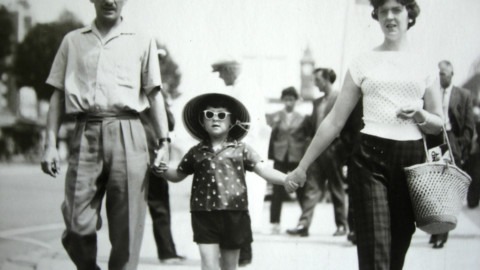This is the third of three podcasts with Sally, on the topic of survivor planning. Episode 53 on Power of the Purse is with Sally Balch Hurme an estate planning elder law attorney and an author of six books.
This is the third of three podcasts with Sally. Listen to part 1 and part 2. You can also listen to live podcast or Episode 53 about survivor planning on Power of the Purse. Also, make sure you listen to our live podcasts
One thing that that is rarely talked about in our society is the death of a spouse. Because there are so many things to think about when an event like this occurs, it is best to make decisions and plans ahead of time. After the death of a spouse, not only are you dealing with the grief and shock of the loss, but you are faced with many important decisions. No matter how well-prepared you have tried to be during a spouse’s declining health, having a checklist that helps walk you through all the decisions that need to be made is helpful. In Sally Balch Hurme’s book, Checklist for Family Survivors, she has included a comprehensive checklist to help you prepare for the death of your spouse.
The Care of Your Deceased Spouse
Shortly, after your loved one dies, you will be faced with some very difficult decisions regarding the care of your spouse. While it is often difficult to think about, you will be faced with questions from professionals regarding whether your spouse was an organ donor. You will also need to consider whether they have previously made plans to donate their bodies to medical research. You may have to decide whether an autopsy appropriate. In certain manners of death, the coroner will make the decision regarding an autopsy. But sometimes, there may be a specific medical condition that the family believes warrants an autopsy to help provide scientific data to help those who are suffering from all various kinds of diseases or medical issues. So, if possible, you and your spouse should discuss their feelings on some of these issues, so you can carry out their wishes.
Sometimes though, a conversation with your spouse ahead of time is not possible. For example, if your spouse is suffering from dementia and either are fundamentally in denial of their diagnosis or the dementia has progressed to the point that the conversation is impossible, these decisions will fall on the surviving spouse or their children.
After You Make the Initial Decisions
Once you have made a decision on whether or not your spouse will have an autopsy, there are a lot of variables in the amount of time it will take, what will happen to the your spouse’s body in the meantime and the plans you have to make for either burial or cremation. For example, if the death occurred in a large research hospital, oftentimes organ donation or the autopsy can be done relatively quickly. Most hospitals have staff who are assigned to consult with the family and to make the necessary arrangements. Especially in the case of organ donation, in a conversation with hospital staff, you will be asked to decide which organs can be donated. Time is critical to the success of organ donation. Additionally, when making the decision to donate your spouse’s organs, it is important to consider their religious beliefs. If your spouse cared deeply about their religion or spirituality, you should take their wishes into account.
After you have made the decisions regarding organ donation and autopsy, next, you will have to decide on what you will do with your spouse’s body. Before your spouse dies, if possible, it is best to have a discussion about their wishes. Do they want to be cremated? Will your spouse’s body be taken to a funeral home? Will they be embalmed?
Financial Considerations
The Pre-need Contract
A pre-need contract is when you plan, together with a funeral home, the details of your spouse’s burial including choosing a casket, all of the other services that go along with that, i.e. transportation of the body, transportation of the body to the cemetery, the type of service, who will officiate it, etc. This can all be paid for in advance. Knowing whether or not the individual had a pre-need contract, what they have already pre-paid and what they have selected is very important for family members, so that the family does not incur expenses that have already been paid for.
There are a variety of legal issues in regards to pre-need contracts that are important to consider. First, how safe and secure is the money that has already been paid. There have been several instances where funeral homes did not adequately conserve the money that was pre-paid, and suddenly the money is no longer available. If your loved one is entering a pre-need contract, you must determine how and where the money will be put into a trust or some sort of insurance policy. For example, if you establish a pre-need contract with a funeral home in Minnesota, and then you decide to retire to Florida, you need to know whether that pre-need contract will be honored.
The benefit of a pre-need contract is that if you decide on the arrangements, and the contract states that the total cost will $10,000 and when your spouse dies, your pre-decided arrangements now cost a total of $12,500, the funeral home is obligated to honor your pre-need contract.
Alternatives to the Pre-Need Contract
Sally Balch Hurme recommends that you set aside the money yourself into an account that is specifically designed to cover funeral expenses. This could be CDs, a savings account, a funeral trust or burial account. By doing this, you are always in control of the money.
Additional Financial Considerations
Bank Accounts
After the funeral arrangements and/or way in which you will memorialize your loved one is complete, there are many additional things you will have to do. First, you will need to start at the bank. You must notify the bank of the death of the individual. If you and your spouse had a joint account, the bank may temporarily freeze your account. The reason that bank does this is for your spouses protection, so that no one tries to clear out the account before probate or the estate can be settled.
Social Security
Another thing that people often don’t realize after the death of their spouse is that the last Social Security check cannot be retained, it must be returned. Basically, when it comes to Social Security, you are paid by the month. If your spouse doesn’t live the entire month, they are not entitled to receive that month’s benefit.
Incidentally, if you are an ex-spouse that was married to the deceased for ten years or more, you may be entitled to the survivor benefit. Even if there is a current spouse, surviving ex-spouses can still apply for the benefit.
Investments
Not only do you need to notify the bank, but it is important to notify your financial advisor or your investment company. You need to notify whoever pays the pension or manages the 401k because they need to keep the account secure (so that no one clears it out before the estate is settled), to determine the value of the account of the day of death for taxation purposes.
Life Insurance
You will also need to notify any insurance companies about the death to be able to obtain any of the proceeds of life insurance policies. Most insurance companies want the original copy of the life insurance policy (if you can’t find it, let your insurance company know), the copy of the death certificate and oftentimes, copies of your marriage certificate and your spouse’s birth certificate as well.
Health Insurance
This is dependent upon what kind of health insurance you had prior to the death of your spouse. If your spouse was on Medicare, Medicare is an individual policy and there are no surviving benefits.
The best way to reach Sally Balch Hurme is by email, and it’s a very simple one. It’s [email protected]. To listen to the podcast and view the complete transcript, click here.









